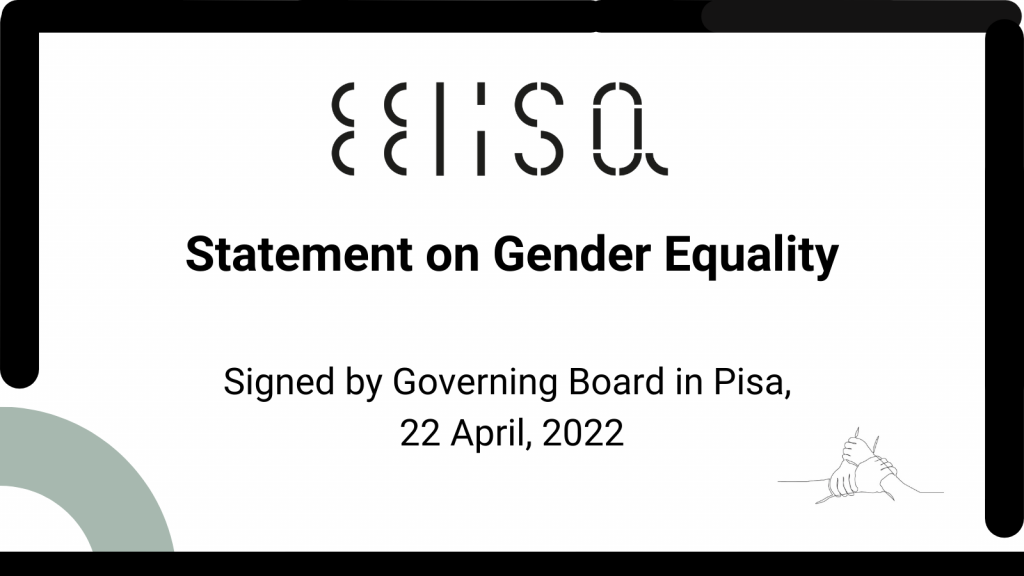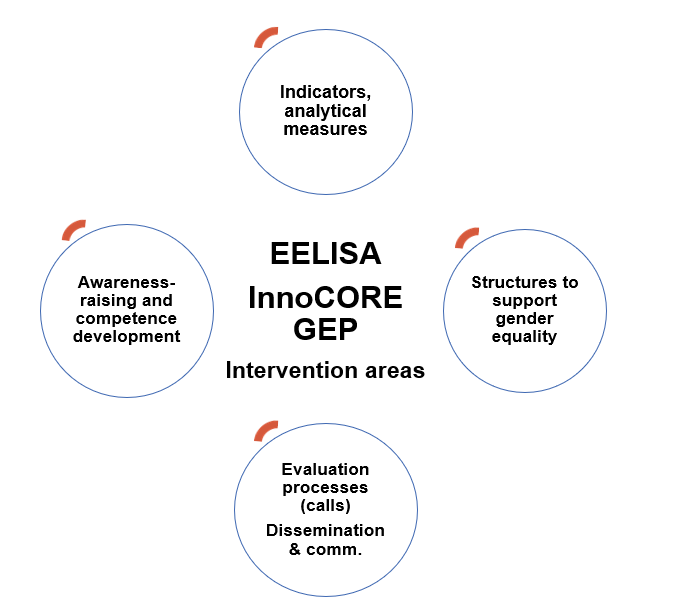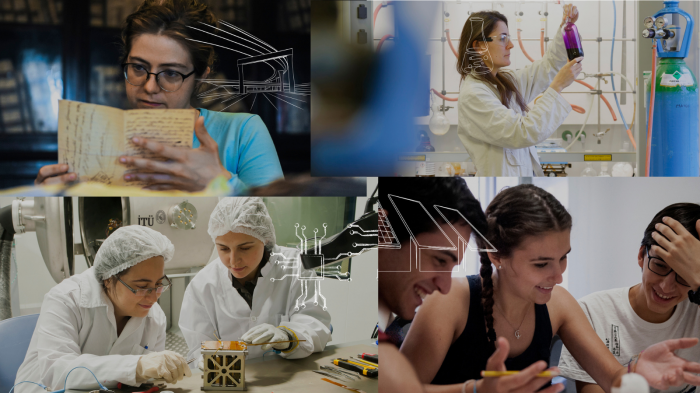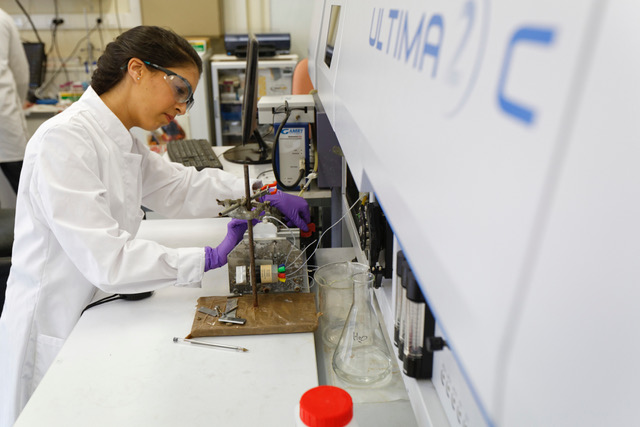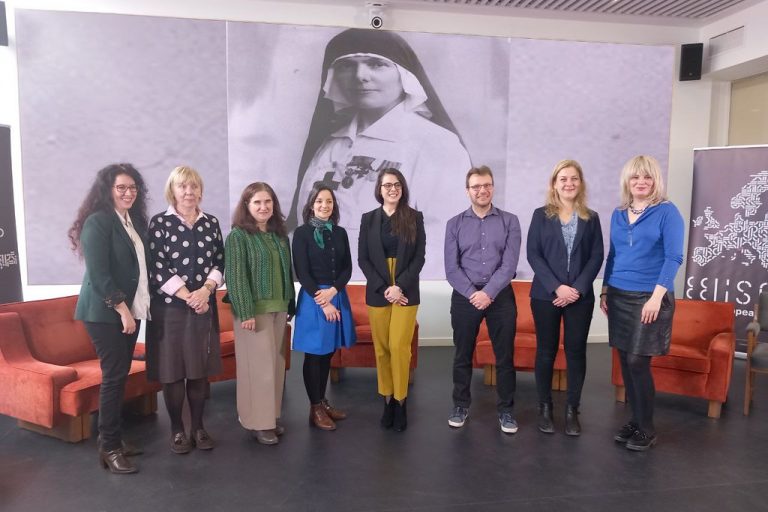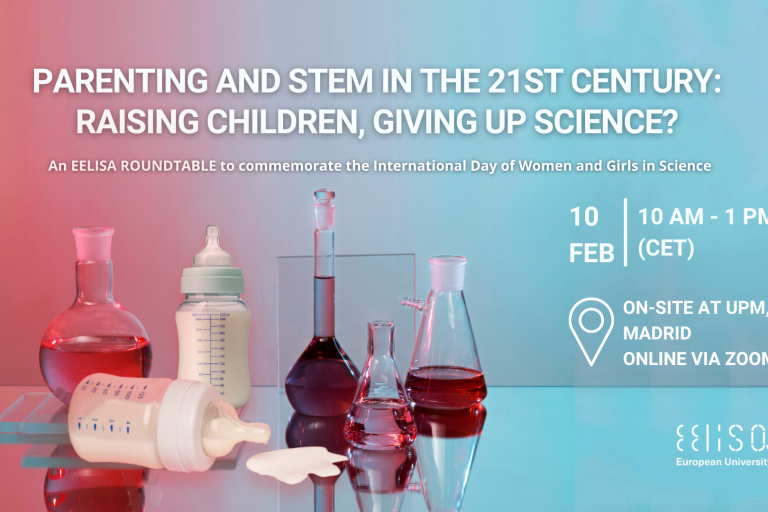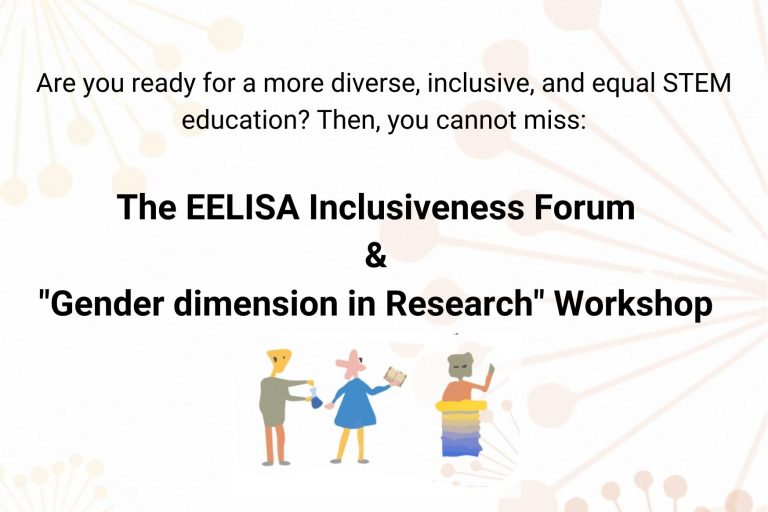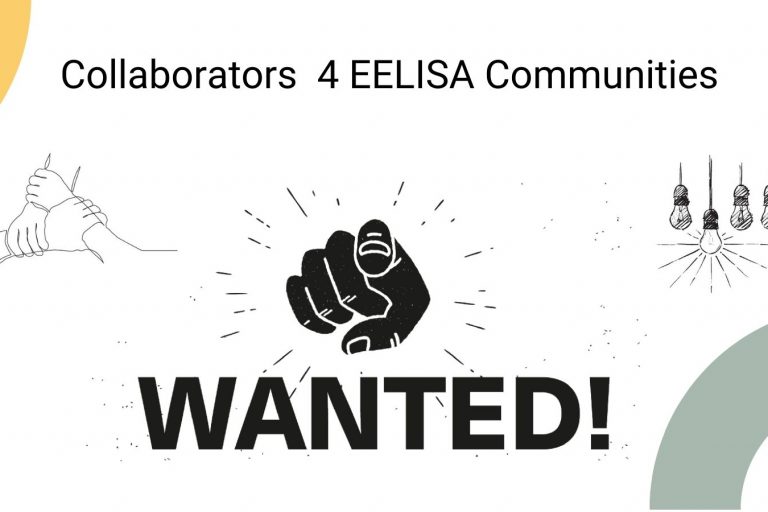“For a more inclusive and responsible world” – an insight into the EELISA activities for IDWGS.
From left to right: Isabel Salgueiro (EELISA InnoCORE Coordinator), Krisztina László (BME), Inés Sánchez (UPM), Adeline Favier (PSL), Virginia Petre (UPB), Julien Becker (ENPC), Laura Tierling (EELISA Gender Equality ¬ Diversity workgroup) and Magda Luthay (FAU) Two days of activities, three months of preparation work, and over twenty people involved. This is how EELISA commemorated…

